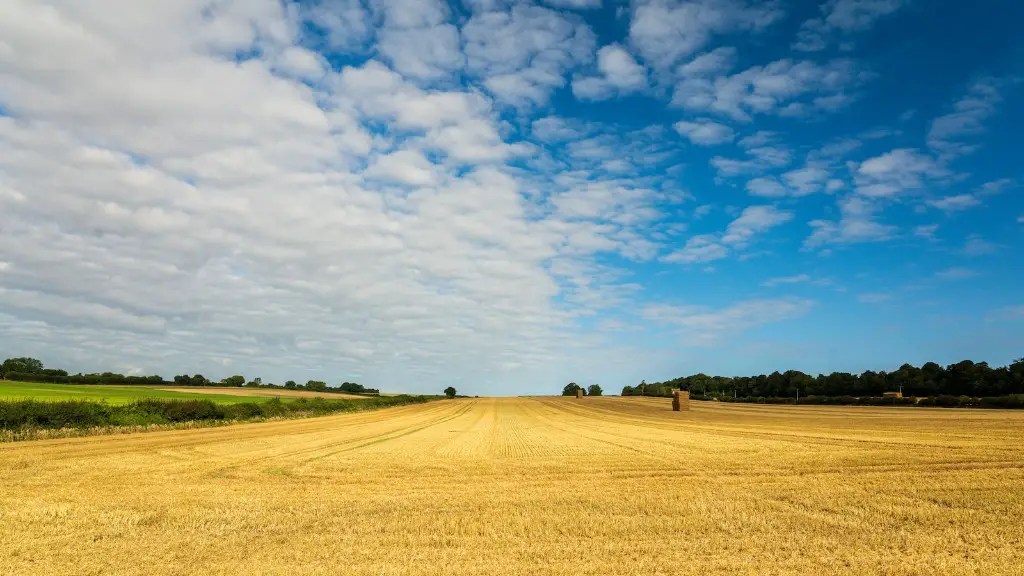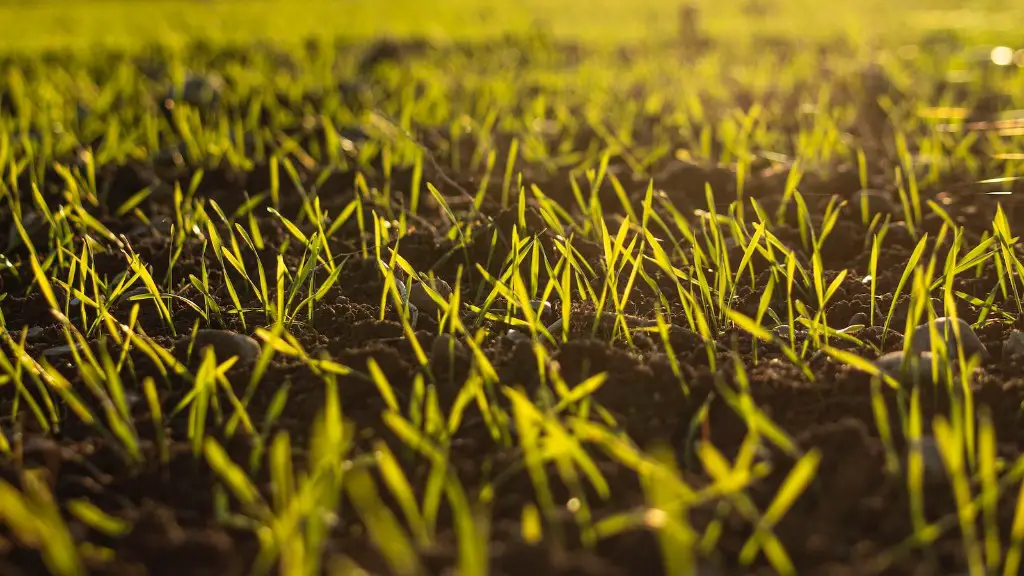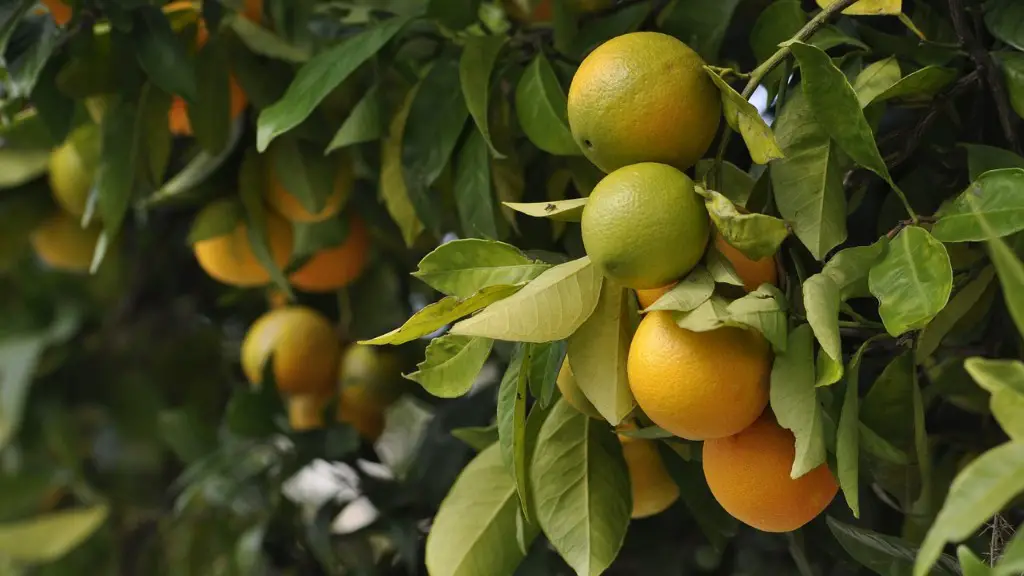Agriculture officers are responsible for the management of a wide range of agricultural systems, from small-scale farms to large-scale industrial operations. They focus on the production and harvesting of crops, livestock health, pest and weed control, soil conservation, water management and harvesting, irrigation, and food safety. Agriculture officers must possess extensive knowledge of farming industry practices and be skilled in the care, maintenance and harvesting of crops. They must also have a general understanding of soil management and land use planning, as well as methods of protecting and restoring land and water used for agricultural purposes. Additionally, agriculture officers must be able to come up with innovative solutions to problems that may arise in the agricultural industry such as preventing soil erosion and improving yield.
Agriculture officers may work in government departments and agencies, such as state and local agricultural departments, or in private sector businesses, such as seed companies, irrigation companies and consulting firms specialized in marketing and research. In their role, they must have excellent communication skills to effectively interact with clients and peers. Additionally, agriculture officers should be well-versed in modern farming technologies and practices, and have a thorough knowledge of the laws and regulations governing farming operations.
Agriculture officers are responsible for overseeing and managing a variety of agricultural operations and activities, including the production of crops and livestock, the implementation of conservation practices, and the administration of food safety programs. As part of their duties, they must identify potential problems, assess and develop solutions, and coordinate prevention and control measures for every type of agricultural business. They may also perform monitoring and surveillance activities in various agricultural areas and take necessary actions to protect the environment. Additionally, they must ensure compliance with local, state and federal laws governing agricultural business.
Agriculture officers must be able to research, analyze and interpret the data related to an agricultural business in order to accurately assess its strengths and weaknesses. Furthermore, they must create and maintain accurate records, regularly review and update information, and identify potential opportunities for improving efficiency and increasing production. Agriculture officers must also be able to collaborate and coordinate with other organizations and stakeholders, such as farmers, suppliers, and government agencies, in order to ensure the success of their operations.
In addition to possessing the relevant technical skills and knowledge, agriculture officers must also be able to think analytically and creatively. They must be able to exercise sound judgment and make difficult decisions in difficult situations. They must also have excellent interpersonal and problem-solving skills and be able to maintain a high level of professionalism at all times.
Agriculture Officer Duties
Agriculture officers are responsible for a wide range of duties, including planning, developing, implementing and overseeing agricultural operations; monitoring land, crop and livestock conditions; regulating farm activities; and enforcing agricultural laws, ordinances and regulations. Other job duties may include assessing environmental risks, participating in agricultural surveys and investigations, and coordinating agricultural programs.
Agriculture officers must also be able to research, evaluate and assess various agricultural situations and develop plans to address problems. They must be familiar with the latest technologies and farming methods, such as precision farming, integrated pest management and controlled environment agriculture, in order to incorporate these into their management strategies. Furthermore, they must be able to identify agricultural and environmental problems, such as soil erosion and contamination, and develop strategies to prevent them.
Agriculture officers must be proficient in the use of computers and have the ability to interpret and analyze data related to agricultural operations. They may also be responsible for developing educational programs or conducting seminars and workshops to increase the public’s knowledge of agricultural practices.
In addition to their technical knowledge and skills, agriculture officers must also possess strong management and strategic planning skills, be proficient in written and verbal communication, and be able to effectively collaborate with other teams and stakeholders. They must also be able to follow safety protocols and have the ability to handle multiple tasks simultaneously.
Agrarian Law
Agriculture officers must be well-versed in local, state, and federal laws and regulations governing agricultural operations. This includes laws related to the production, harvesting, storage, and sale of agricultural products, soil and water conservation, land use and zoning, and animal control and welfare. They must also be knowledgeable about the public health and safety concerns related to the production and processing of agricultural products. Additionally, agriculture officers must be familiar with the insurance and risk management policies and practices that are in place for the agricultural sector.
Agriculture officers must also be familiar with the various agreements and contracts that govern the marketing and distribution of agricultural products. They may also be responsible for developing new agreements and policies that ensure compliance with government regulations, while still fostering the economic growth and development of the agricultural sector.
Agriculture officers may be responsible for overseeing the daily operation of a farm or agricultural business. This may include monitoring the health and safety of employees, tracking and managing inventory, managing budgets, and analyzing the efficiency of operations. They must also be able to identify and implement cost-saving measures and develop strategies that improve operational efficiency.
Agriculture officers must be familiar with local, state, and federal laws and regulations related to pest and weed control, irrigation, and water use. They must also be proficient in the use of agricultural tools, such as tractors and mechanized harvesters, and have the ability to operate specialized equipment safely and effectively. Furthermore, agriculture officers must have a working knowledge of computer systems, agricultural databases, and agricultural software.
Agriculture Officer Education
A bachelor’s degree in agricultural sciences or a related field is usually required to become an agriculture officer. Those interested in this career should consider completing courses in agricultural economics, soil science, crop production, biochemistry, animal science, entomology, plant pathology, range management, horticulture and related topics. Internships and hands-on experience can be beneficial in helping individuals gain the necessary skills to become an agriculture officer.
In some cases, individuals may need to complete additional training or certification courses in order to meet local, state, or federal requirements to become an agriculture officer. For example, in certain states, individuals may need to obtain a state certification in order to practice as an agriculture officer.
Agriculture officers should also possess strong organizational and management skills, as well as a working knowledge of computer systems and software applications. Experience in project management, budgeting, and grant writing can be beneficial. Additionally, those interested in pursuing a career in this field should be creative problem-solvers, have the ability to innovate solutions to challenges, be detail-oriented and be able to work in a multi-disciplinary environment.
Career Advancement Opportunities
Agriculture officers may advance their careers by obtaining additional training, certification or experience. Promotion usually depends on the type of employer and the specific job they are doing, with advancement opportunities in the form of managerial or executive positions. Those with advanced degrees or specialized training may be able to qualify for higher paying positions or research opportunities.
Agriculture officers may also specialize in a particular area of the agricultural industry, such as soil conservation, pest control, or animal husbandry. Those with advanced degrees may also be able to pursue careers in research, teaching, or consulting. additionally, individuals with experience in the agricultural industry may be able to pursue consulting work, since publishers, law firms, and other businesses hire consultants to provide advice and guidance on agricultural matters.
Agriculture officers may also try to advance their careers by volunteering to help local farmers and ranchers improve their operations. This remains valuable experience that could be used to further their own careers. Lastly, establishing their own consulting or agricultural practice is an option for those who have the necessary business skills. This type of career path could lead to farming or ranching, or even the creation of their own brand of crops or livestock.
Job Outlook and Working Conditions
The job outlook for agriculture officers is said to be favorable. Employment of agriculture officers is projected to grow by 8% between 2018 and 2028. Job opportunities should be best in rural communities, with more demand expected in areas with a high concentration of farms, as well as in areas with large farms and ranches. In addition, more jobs are expected to become available in areas that are experiencing population growth.
Agriculture officers typically work in farms, ranches, agricultural offices and other agricultural-related settings. Working conditions vary depending on the farm or ranch and the type of agricultural activity. Some jobs require long hours, including weekends and holidays, in order to cultivate and harvest crops, or care for and feed livestock. Agriculture officers may work outdoors in any and all weather conditions, often in isolated areas. In addition to physical labor and exposure to hazardous materials and equipment, they may undergo stressful situations, such as dealing with unhappy farmers and ranchers and managing unexpected crises.
Salary and Earnings
The median annual salary for agriculture officers was $50,000 in 2018, according to the Bureau of Labor Statistics. The lowest 10% earned less than $32,600, and the highest 10% earned more than $82,630. The exact salary for agriculture officers will depend on geographical location, type of employer, years of experience and level of education.
Agriculture officers may also be eligible for health, life and disability insurance, retirement benefits, holiday pay and paid vacation time. Those employed full-time may also be eligible for paid sick leave and tuition reimbursement for courses related to their job.
Career Opportunities
Agriculture officers may find employment in private sector businesses, such as seed companies and farms, as well as in government departments and agencies, such as state and local agricultural departments. In addition, they may pursue positions in consulting firms, marketing and research firms, insurance companies and educational institutions. Additionally, they could work as agricultural advisors, scientific researchers, and agricultural safety specialists.
Agriculture officers also have the opportunity to advance their careers by completing continuing education courses or obtaining a master’s degree. With an advanced degree, they may be able to pursue research, teaching or consulting opportunities. Furthermore, those with the necessary business skills could establish their own consultancy or agricultural practice.





